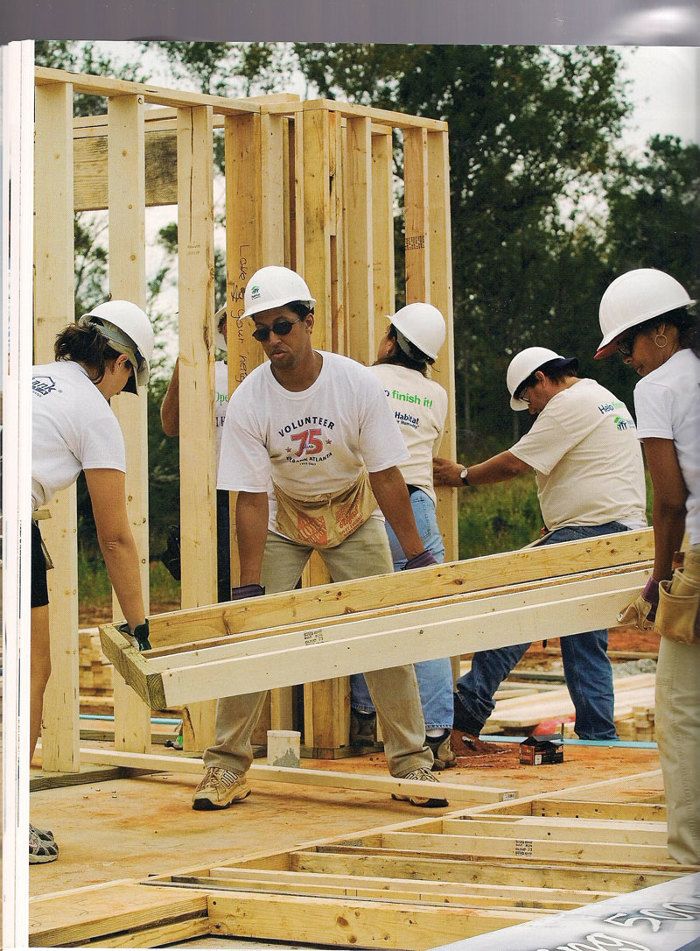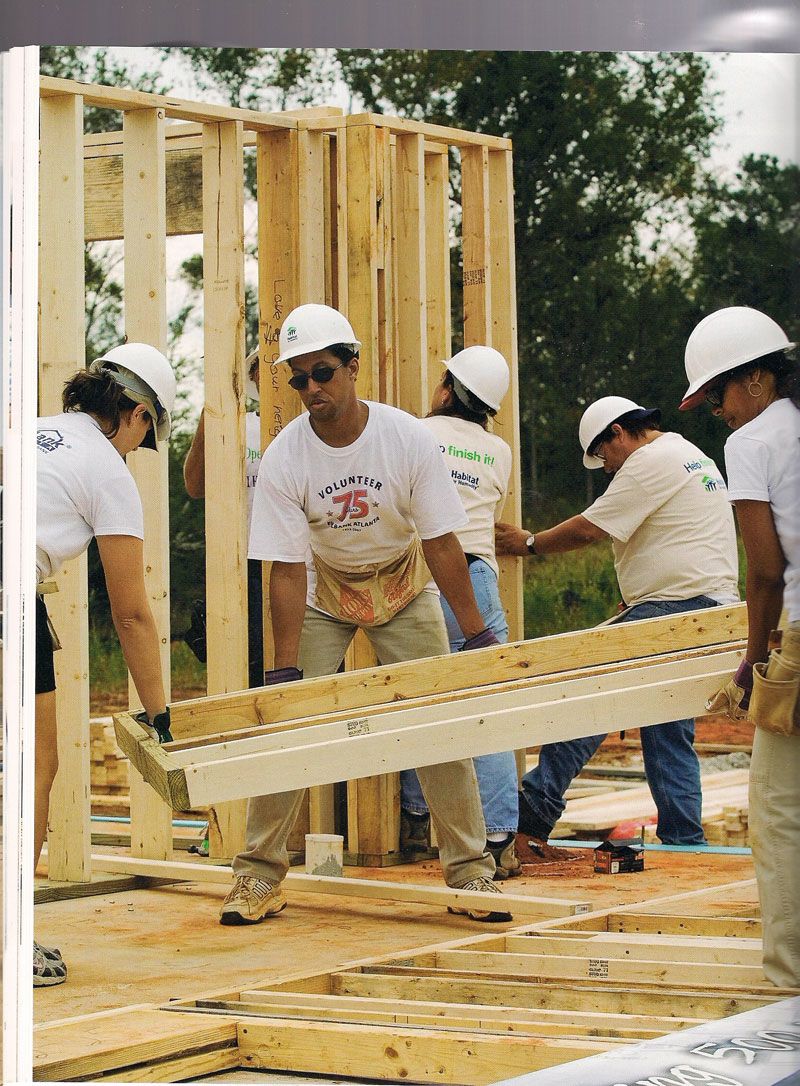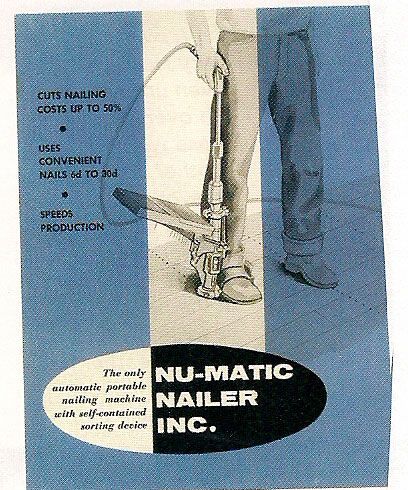
WORKING WITH ILLEGAL ALIENS, PEOPLE OF COLOR, WOMEN, AND OTHER “MISFITS” IN THE CONSTRUCTION TRADES.
An old Irish song: “They are hangin’ men and women for the wearing of the green.”
Is racism and sexism handed down to each generation from our families and culture, or are we born with such feelings? My experience is that to be racist or sexist is a learned habitual pattern. Our family lived in a small anti-Native American town not far from the Pine Ridge Lakota reservation in South Dakota. There was an unwritten notice that in Harrison, Neb., pop. 500, Native Americans were not welcome. Even in the 1950s I saw signs in shop windows in places like Hot Springs, S.D., saying, “No Indians allowed.” Whenever a Native person did come through our town, Mother had food and water for them. I am grateful for that!
I think that the reason my family escaped being discriminatory of others because of race, color, gender, or whatever was mainly due to our mother, Elizabeth Brennan. She was born in 1897 of immigrant parents. She was not only Irish but Catholic—double jeopardy. She had seen the signs in store windows: “No Irish allowed” and “Help wanted. No Irish need to apply.”
As a Catholic, Mom had experienced our prairie home circled by the Klan. They rode big horses and hid behind white sheets terrorizing people. In our isolated rural area, there were no Afro-Americans or Jewish people around. So there was no one left to terrorize except us Catholics. Once the KKK even burned a cross in front of our house. So our mother with her five children knew what it was to be the object of discrimination and prejudice.
I think the very first person we hired to help build houses was a survivor of the Nazi death camps. I learned much from him about man’s inhumanity to man—stories that made my soul ache. Paul did the pickup (punch list) work behind us on hundreds of buildings for 30 years or more. He was always on the job on time and often worked alone. He was a trusted employee that kept developers and building inspectors happy.
The Latino people I knew and worked with beginning in the 1950s had been in California long before the likes of me arrived. Many of them were skilled craftsmen, especially when working with concrete. Still, they were often seen as lazy, siesta-taking, chili-loving invaders from the south.
Fernando was the first illegal alien we hired. He worked with us for 25 years or more. He was a piece worker nailing off floors and roof sheathing with an ingenious device—a walking nail-driving machine that used uncollated 8d nails (see photo). The Paslode nail gun didn’t arrive on job sites until 1962, so we used the walking gun for many years.
The next “river wader” we hired was Martin Garcia. Martin came to work as a laborer in about 1954, followed by his son Johnny. Johnny became a master carpenter and foreman on job sites. Learning their Spanish language opened up a whole new world to me. Their culture is quite beautiful. Is there some valid reason why many in our country resist being bilingual?
And who says that women can’t be framers? Framing isn’t a matter of brute strength. It is a matter of body coordination, willingness to learn, and loving to work with your hands. Often the women carpenters were the ones we would call on when precession work needed to be done. The women who worked with us all did quite well. The main problem, so they told me, was the banter that went back and forth on a job site between men. Sometimes they became intimidated by having to listen to racist and sexist “jokes” and men put-downs. They also found it difficult to find tools like nail aprons that were made for them.
African Americans were at the bottom of the ladder when it came to construction work. Mainly they were victims of institutionalized racism coming from their history as slaves in this land of the free. The unions were mainly closed to them. In all the years I worked as a framer, I never saw one black plumber on any construction site, and just now and then a black electrician.
Sam Dunbar was the first African American that we hired as a laborer. He too became an outstanding carpenter and later on a contractor. Sam lived on the South Side of LA, which at the time was a tough part of town. I heard someone ask him one day where he lived: His reply: “I live on tough street. The further down that street you go the tougher it gets and I live in the last house.”
Sam was full of stories. I asked him one day how he got to LA and into the laborers’ union. This is part of his story: “I came out of the South looking for work and after a long period was accepted into the laborers’ union. The first job I was sent on was to carry materials as we built the beautiful Mormon Temple in West Los Angeles in the 1950s. I arrived with a group of workers sent out from the hiring hall. I was the only black man in the crew and wasn’t allowed to work on this Mormon site. We, as union laborers, all sat down, blocked the gate into the temple, and shut the job down until they agreed to let me work.”
Once word got around that we were hiring blacks, a flood of good workers came our way. Many of them were quite interesting people: musicians, a PhD candidate at UCLA, all hardworking people. They added lots of good humor, song, and their own culture to the mix, which made the work day seem shorter.
Issac came from “South Georgia right down near the Florida line.” In the Jim Crow South, he never had the chance to go to school to learn to read and write. When we changed job sites in LA I would personally take him to the new address and show him where we would be working, as he couldn’t read the street signs. I wish I had a video of him nailing together walls. He was by far the fastest hand nailer I ever knew. He was a good man with a great sense of humor.
And then came the deaf people. As far as I know, we were the only crew who hired people with no hearing ability. I suppose this was mainly due to the fact that I spoke ASL—American Sign Language. We couldn’t put deaf carpenters to work in high places because their balance was often impaired. They, like the other misfits we hired, became grateful, committed workers because we gave them a chance.
In my opinion, discrimination because of gender, color, or anything else is harmful to all of us. We treated everyone that worked with us with respect, paid them good wages, and expected the best from them. And guess what? They did give their best. We had some great crews!
As Rodney King said after having been beaten badly by some LA policemen, “Can’t we all just get along?”
Good question. Can we?
Fine Homebuilding Recommended Products
Fine Homebuilding receives a commission for items purchased through links on this site, including Amazon Associates and other affiliate advertising programs.

Handy Heat Gun

Reliable Crimp Connectors

8067 All-Weather Flashing Tape

























View Comments
Thanks, Larry, good column.
You raise a lot of issues I see as moral and I see moral decisions as personal- there really aren't any (god)-given rules- we all have to make it up as we go. That said, when I see what I consider immorality, I work against it. (And try not to make it into a fight.)
Now, putting that stuff aside, ability is pretty much evenly distributed. (god) didn't say, "Well, I'm gonna give all the white boys managerial abilities and all the black guys totin' abilities, and well, Injuns, I'm gonna make them all drunks." 5% of ANY group are truly great, 20% are merely good, 50% are doing their best, 20% are a bit slack and 5% you should cross the street to avoid saying hello to.
If you rule out blacks and immigrants and Republicans and gays and women and hippies and left-handers and Catholics and Irish, pretty soon, you won't be able to find anybody who can do the job. I worked with a woman who struggled to carry a bundle of Arch80s up a ladder, but she could nail them off as fast as anyone and she was twice as good as the foreman at keeping the clients happy. And a dynamite finish carpenter to boot.
So, for you people who really aren't into the morality of it all, consider the money. And in the course of it all, you may find some real friends, like Larry did.
I agree with you BobboMax, I would consider working with different kinds of people as an opportunity to learn their culture or even to practice your leadership that you can get along with any kind of people not just one race.
I just discovered today from this site that Larry had died, what a bummer. I could tell he was a great guy and this blog proves it. Bilingual, knew sign language this only added to his obvious intelligence. From his books and videos,as a carpenter I modeled Larry. Thanks Larry, you will be missed! He was one in a million. And what a life of experience.
I find it sad that in our “modern” world we still hold on to prejudices that never had place in this great country. Especially in the trades.